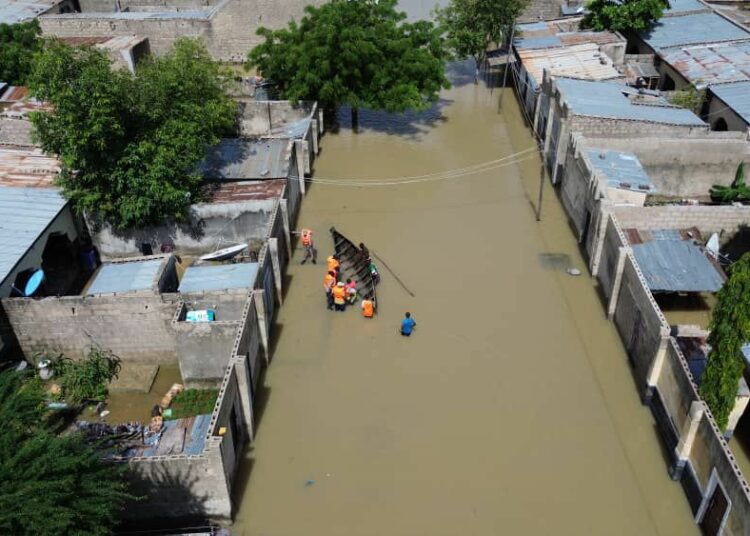ActionAid Nigeria has stressed the importance of monitoring and evaluation mechanisms in the disbursement of the N3 billion allocated to flood victims in Maiduguri, Borno State.
The organisation has called for collaboration with Civil Society Organisations (CSOs), Non-Governmental Organisations (NGOs), and volunteers to ensure that aid distribution is both efficient and transparent.
Speaking at a press briefing on Sunday in Abuja, ActionAid Nigeria’s Country Director, Andrew Mamedu, represented by the Deputy Country Director, Hajiya Suwaiba Dankabo lauded the federal and state governments for their swift response.
He urged for accountability at every stage of disbursement to guarantee that the aid reaches the most vulnerable, while also maintaining public trust.
Mamedu highlighted the dire situation facing thousands of families in Nigeria, many of whom have lost homes, livelihoods, and loved ones.
He commended the government’s commitment to addressing the crisis, stressing the urgency of releasing the funds for timely intervention.
“We cannot afford delays while thousands remain without shelter, food, and essential supplies. Speed is critical, but integrity and accountability are equally important in this process,” he stated.
According to ActionAid, the flooding this year has affected 28 states, resulting in 175 deaths and displacing over 207,000 people.
The devastation in Maiduguri is particularly severe, with 37 reported deaths, 58 injured, and over 414,000 people displaced.
In addition, 7,155 households have been affected, 737 hectares of farmland washed away, and critical infrastructure such as roads and sanitation facilities destroyed.
Mamedu attributed the worsening floods to poor urban planning, deforestation, blocked drainage systems, and the impacts of climate change.
He emphasised that behind the statistics are real human stories—families who have lost everything.
The Country Director said ActionAid Nigeria is actively working with local and international partners to provide immediate relief, distributing emergency food, clean water, and hygiene kits.
He, however, said the organisation’s resources are being stretched to their limit, particularly with the increased vulnerability of women and children, who are at greater risk of gender-based violence in the aftermath of the disaster.
Mamedu concluded by calling for unified action, saying, “The sheer magnitude of this disaster cannot be overstated, and it requires our immediate and collective response.”











